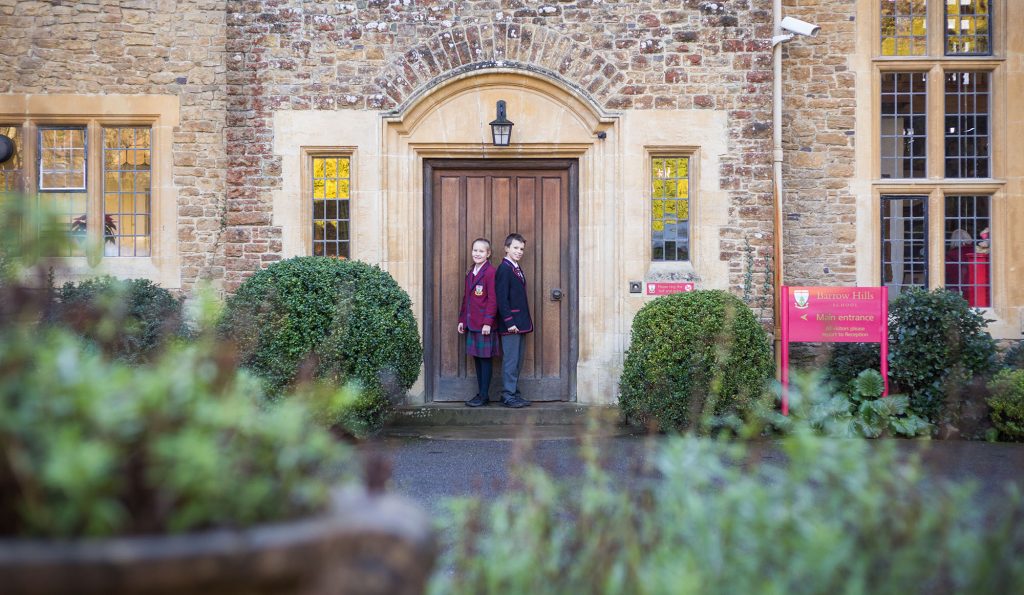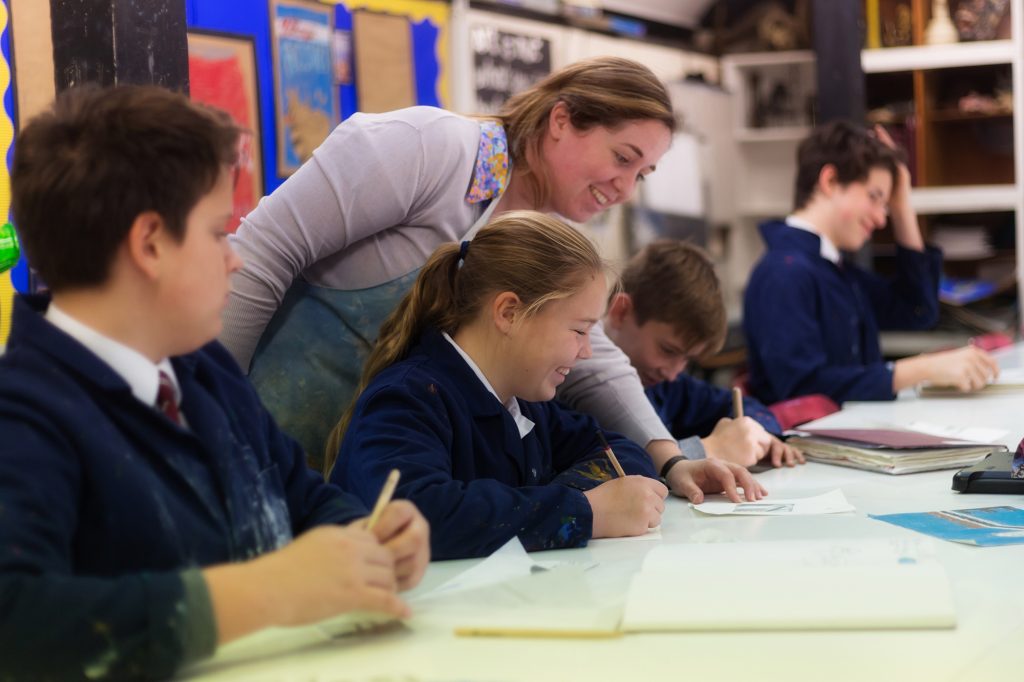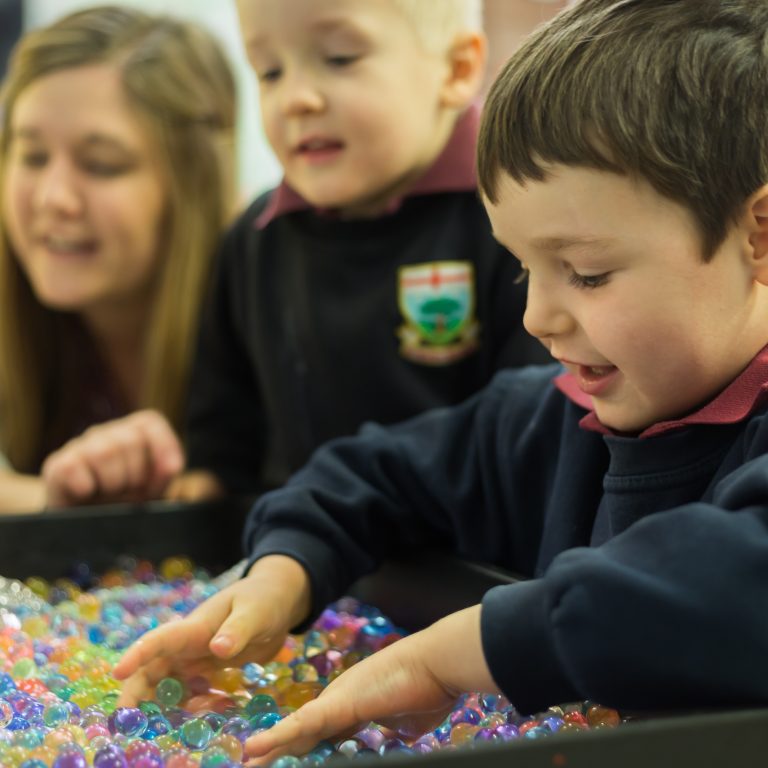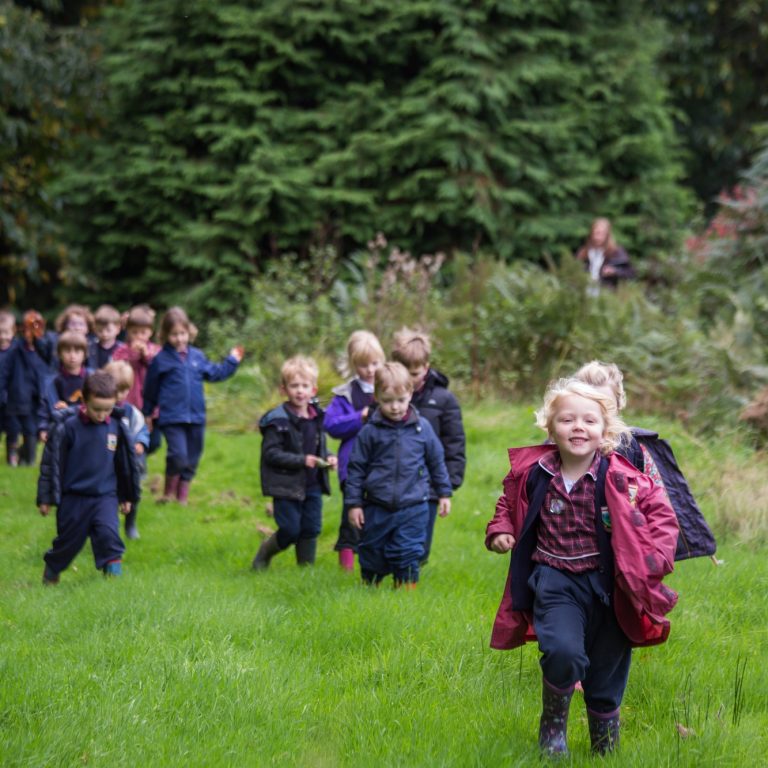Reception ‘teething problems’ – top tips from the professionals
by Rachel Harris, Reception Teacher
Deep breath… it’s your child’s first day in Reception. You spend the day worrying about how they are getting on and cannot wait to pick them up, full of questions: What’s your teacher like? Who did you play with? Did you eat lunch? What did you do?’ Did you enjoy it? Have you made friends?’ Of course, a four-year-old is not going to have made detailed notes and be able to give you a blow-by-blow account but the chances are they have had a happy, busy day.
Sometimes, however, getting over the hurdle of the first day or two is only the start – I remember my own daughter being surprised and a little alarmed that she actually had to go back again after her first day.
It can take children a little while to realise that they will be going to school Monday to Friday; and just have weekends at home. Your child may therefore start to become a little clingy in the mornings, once the initial excitement of starting school has begun to wear off and tiredness sets in.
It can be hard if you have a wobbly child in tow, but try and stay calm, kind and positive if your child shows signs of being upset when leaving you. Your child will be quick to pick up on your distress; and may make them feel that there really must something to worry about, if mummy or daddy are upset as well!
If you have any concerns, no matter how small, do speak to your child’s class teacher (away from your child’s little ears!). The teacher is there to support you and your child and ensure that the move to Reception is as smooth as possible. If there is an issue with transition points, such as being left in the morning, the teacher will be able to put in place strategies to help: for example, giving your child a task to carry out when he or she comes in.
It also helps if you let the teacher know of any particular interests your child has, so that an appealing activity relating to that interest is available. For example, a parent told me that her son’s concern was whether there were dinosaurs in his new classroom. We went straight to the tray full of dinosaurs; and then read ‘Harry and the Dinosaurs go to School’ as our introductory class read. The child was soon happily settled into his day.
At Barrow Hills, our Reception children often have the opportunity to play with others in Pre-Prep (Nursery through to Year 2) at break times. Older siblings are also encouraged to pop down to the Early Years area. Knowing their siblings are close by, provides reassurance for the younger ones, and of course the older children relish their more grown up status! We also have timetabled ‘show and tell’ sessions. Encouraging children to share something special from home – be it an object or an activity – increases their confidence and benefits their social skills as they enjoy engaging with and listening to their peers.
Talking to your child about their day is also very important. It is crucial to show an interest in your child’s school life; but remember not to get that list of questions out. It can help if you keep your questioning specific to something you know your child has done. For example, your school may well operate an online ‘learning journal’ where the teacher posts pictures of your child undertaking various activities during the school day. This can be a great way to keep in touch with your child’s school life; and be a peg to hang questions on. Saying, “It looked as though you were having a lovely time with the playdough today – what were you making?” is more likely to receive an enthusiastic response than the more general, “What did you do today?”
You may also find that your child behaves beautifully in school but exhibits unusual or more challenging behaviour at home. This is not uncommon when children start Reception: after working hard during the day and acclimatising to the school’s behaviour expectations, children may let it all go when they get back to their familiar surroundings.
Challenging behaviour at home can also be down to being just plain tired – new situations, new people, new ideas, new expectations for behaviour, new social interactions – these are tiring for adults and exhausting for children.
Even if your child is used to being in childcare all day, Reception is a whole new exercise. Children are often exhausted and hungry by the end of the school day and it can be a good idea to bring a snack as a pick-me-up, so that they can recharge their batteries a little as you travel home.
Letting your child have some rest and relaxation’ in the evening is important. Do bear that in mind when choosing any after-school clubs or activities for your child. Sticking to your bedtime routine also matters. You may find that as a delaying tactic, ‘lights-out’ is the very moment when your child decides to tell you all about his or her day at school. It is worth factoring in time for these important moments.
There are practical things you can do to help your child’s first experience of school. There can be a lot of dressing, undressing, doing up zips, changing into trainers, putting on aprons and so on in Reception, so practising these skills at home (when you have plenty of time!) will help your child become independent and foster his or her sense of mastery. For children who are reluctant to have a go at changing themselves, try making the process more fun – I find myself singing “Zippity Doo-Dah, Zippity Day!” with gusto to encourage children as they get themselves zipped up for playtime.
As well as these practical skills there are a whole host of ‘soft’ skills that children will have started to develop (particularly if they have attended Nursery or Kindy), which you can nurture in your child at home. During the Reception year, the children will be taught life skills such as ‘what makes a good friend’; but anything you can do at home to encourage your child to master the arts of sharing and taking turns will serve to support their social interactions in class. Fixing up some play dates in a neutral environment (such as a trip to a local park), rather than inviting children back to your house where your child may become territorial over their toys, can also be beneficial.
If your child does speak about any worries, reassure him or her that the adults in the classroom are there to help. Keep an open line of communication with your child’s teacher: share any concerns that your child has expressed, as well as anything that may be happening at home that could affect how your child is feeling. The fuller the picture the teacher has, the better able he or she will be to help and support.
Finally, remember that teething problems are entirely normal – this is a significant step your child is taking in their lifelong learning journey. However, the school’s teaching team will be there to offer caring support to your child… and to you, when you wonder how it’s possible that someone fitting into ‘Age 4’ clothes could possibly be growing into such an independent person!





